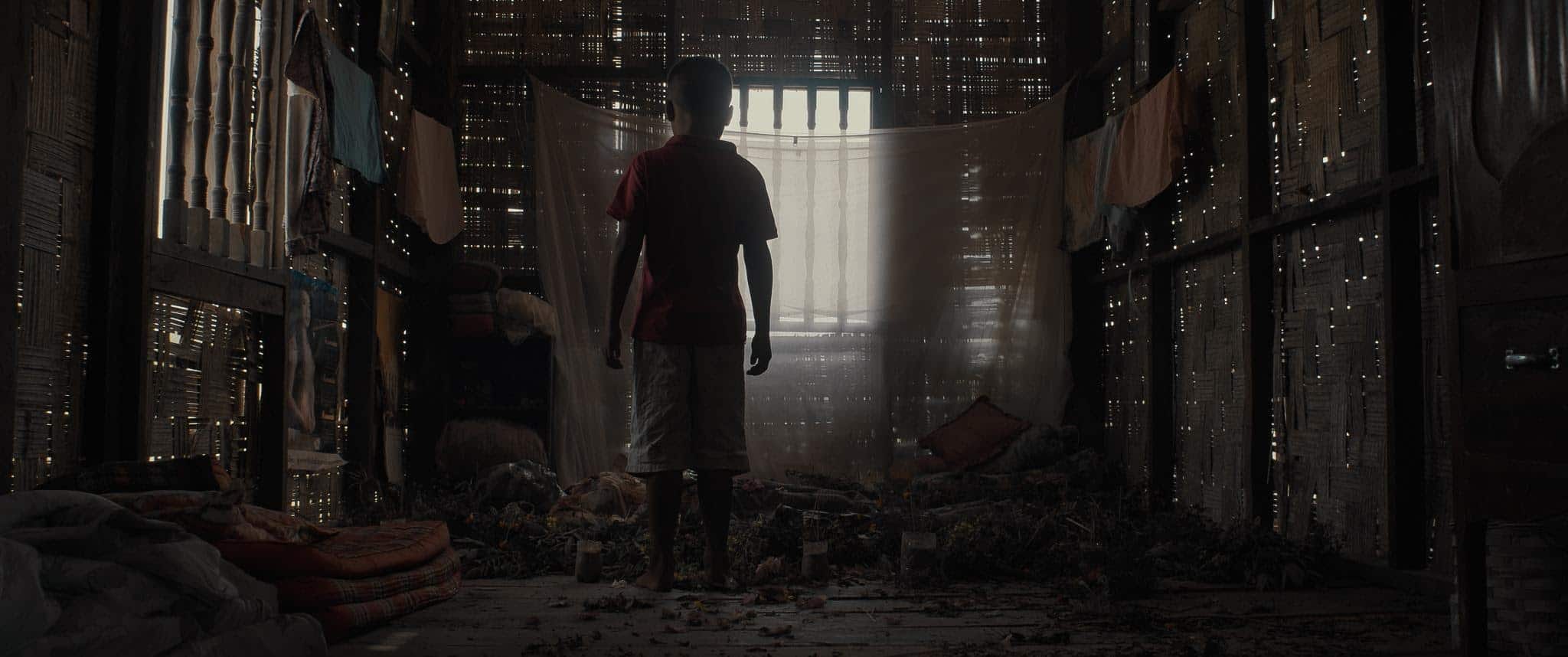Three years after her first feature, Mattie Do comes back with “Dearest Sister”. The movie was the Laotian representative in the run for the Best Foreign Language Film for the 2017 Academy Awards.

Ana is living with Jakob. The wealthy couple are settled in Vientiane, capital city of Laos. The married woman is losing her sight. Since then, she sometimes enters in contact with spirits. Nok, an unknown cousin, leaves her home village and boyfriend behind to help out Ana in the big city.
The relationship between the two cousins evolves and fluctuates. As Nok tries to fit in the capital, she tries to fit in her new family. If it was hard at first for her to find her place, she quickly becomes irreplaceable (#Beyonce) and necessary to Ana. Their bond gets stronger but also more complicated. Nok is using Ana's visions to win the lottery. Ana finds out and almost repudiates the countryside youngster. Moreover, Nok feels rejected by her family and boyfriend. Nearly rootless and feeding on her fascination/jealousy towards her cousin, the character played by Amphaiphun Phommapanya will try to live up to her (projected) standards, and fail.
On the other hand, and on the other end, Ana has hopes to find her sight back. This means that she will not need Nok anymore and might not be able to get the new winning numbers. This sets the scene for the final and tragic act.

The title “Dearest Sister” actually hints at the unique tie the two main characters share. It is quite enjoyable that such passion between two women- not in a romantic way- is shown on screen, fact unfortunately too rare.
It can be surprising to see that the movie is presented as a horror movie. Indeed, the spirits are not scary here, and the danger and horror actually come from the human beings, how they interact and deal with their own personal demons.
“Dearest sister” presents dodgy and fluctuating characters: Ana, Nok, Jakob, the servants. Nothing is all black and white. The viewers sometimes feel bad for them, are sometimes really empathetic towards them, and then also sometimes can't help but hate them. Just like the main characters' relationship, it is nuanced and contradictory.
Nok has a really interesting evolution, although sometimes a bit too quickly explained. She was a naive country side girl, then a loving and understanding cousin, then a manipulative-yet-still-nice and wanting-to-belong woman, then passion takes over and she wants to get revenge. She is bullied then bullies. Her impossibility to fit and belong is also reflected in the fact that she doesn't know where to eat and sleep (in the house or with the servants) and is told differently as the movie goes on. Her role isn't also clearly defined: she is not totally a servant, not totally a company lady, not totally family, and not totally a friend.

There are some recurrences between the director's first and second feature. With the actors first: Amphaiphun Phommapanya is still playing the main character, or Douangmany Soliphanh can again be seen as a father-figure. Secondly, in terms of image: despite having supernatural elements to the plot, the frames and lighting add a touch of fiction as representation of reality. Finally, in terms of themes (although the movies are two totally different ones): nuanced and interesting female characters, family binds, religion and beliefs, connection to the spiritual world, solitude.
“Dearest Sister” is a good movie to watch, it mixes interestingly different genres (although hardcore horror fans might be disappointed), explores different topics and brings in an interesting take on passionate but non-romantic relationships.















